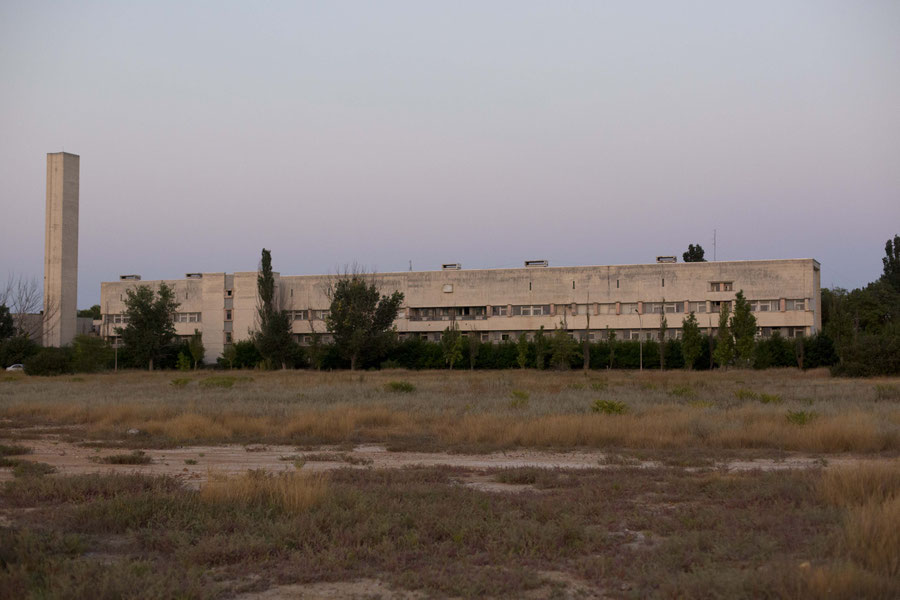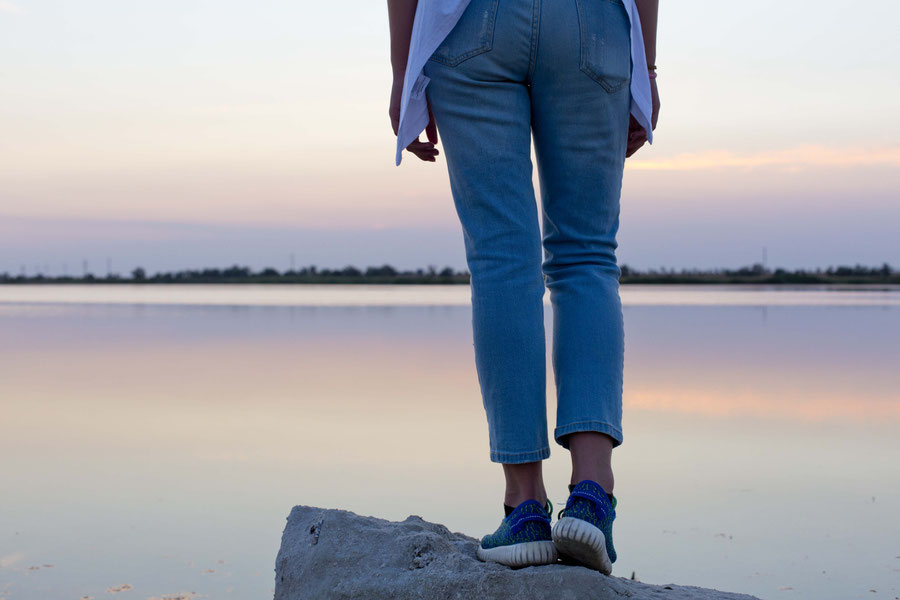Crimea isn't the crisis stricken area that it's portrayed as in the Western media. Neither is it the paradise the Russians proclaim it to be. The truth is somewhere in between. On some afternoons, fighter jets fly over the beach. The girls don't notice them. The boys point excitedly to the sky. A few moments later we hear thunder like sounds. Can it be? Are they testing bombs? The children don't know. It must be thunder, they say. We foreigners are relatively sure that it must have been a weapons test because there are no clouds in the bright blue sky. The next day, no one puts two and two together, when deep-sea grass and jelly fish lay in unusually high numbers on the beach.
When I arrived on the island, I passed through several checkpoints from shore to shore. Once in Crimea, I was led to the right bus by two teams that weren't working together. A group of old ladies, of whom the manager spoke fantastic English and a group of rebellious young Russians who apparently only worked here during summer. Typical for Russia, these young people behaved with an uncomfortable frankness, which they immediately dropped when the other workers were out of sight and ear shot. A circumstance everyone knew about, apparently. In Russia, it's always more important that it appears as if the rules are being followed, than actually following them. Whether in the end they are complied with, doesn't concern anyone. An approach that drives me insane.
It's also incredibly hot here. Many places on this peninsula remind me of Sicily. I have seen the dried-out yellow grass, the loud noises and the fantastically turquoise blue sea before. To fill up my travel budget, I teach English for five weeks. The earned money will bring me all the way to Australia. That's the hope. But it also means that I don't have the time to write as much as I would like. It's a full-time job. Little sleep, lots of communication and cultural encounters. Most of my students are curious and eager to learn English. However, some can hardly say "Hello". A group where my communication attempts bounce off and spread more disaster and uncertainty than that they help. Fortunately, I am not alone with teaching, and some experienced summer camp colleagues and my counterpart from Uganda (who understands enough Russian to understand the complaints of the Russian students) take care of the cases with which I cannot do anything.
I can only write this now because I have a disgusting stomach virus and was up all night vomiting. Meanwhile, my rest hour is being interrupted by two desperate teenagers that are trying to get an iPhone unlocked with the help of my computer. I am thus kept from accessing my en suite toilet (which is another layer of stress). I decided to make the most of my situation and collect my thoughts. As always, "quiet" and “rest” are relative terms. I am already looking forward to the hoped-for solitude in the mountains of Georgia.
I left political Europe six months ago, and yet I returned to the West with my pit stop on Crimea. I will finally reach Asia by taking the step across the border to Georgia. Russia taught me a lot, and I am leaving far too early. The language still gets stuck in my throat and I only manage to squeeze out a few words, but my understanding gets better and better. I've learned to survive in Russian, but am incapable to read Dostoevsky. My six-month stay wasn't enough. Taken everything into account, I'm happy with my base and feel that a little training will facilitate a return to this land of thousand contradictions. And once more, I don't leave without new travel plans and destinations. The next time I will venture across Russia, from Togliatti/Samara to Vladivostok with a Russian car (equivalent to the VW bus). Zukunftsmusik (an untranslatable German word, meaning music of the future).
* If you like what you read, consider supporting me on patreon!*



Write a comment